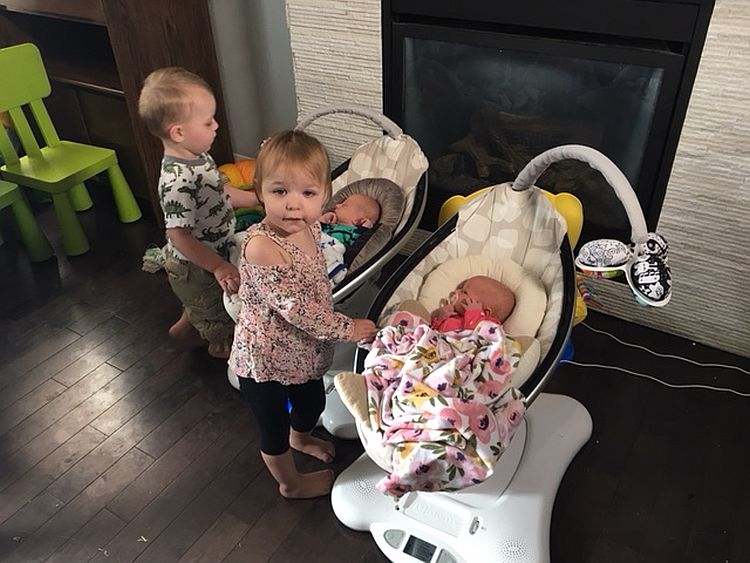
LISTEN ABOVE: The director of the Twin Studies Center at California State University explains why all same-sex twins should get genetic testing.
Are you a twin? And if so, do you know with confidence whether you are an identical or fraternal twin?
Many parents rely on the results of an ultrasound. If there are two placentas, they assume they are carrying fraternal twins, and if there is one placenta, it’s assumed the twins are identical.
However, identical twins can also have separate placentas and amniotic sacs. Fraternal twins can have the appearance of having one placenta.
READ MORE: Alberta couple welcomes third set of fraternal twins: ‘We’ll call it quits here’
A 2012 British study found many parents may be misinformed by parental scans. Researchers interviewed 1,302 parents of same-sex twins who had been told by health care professionals whether their children were fraternal or identical.
With DNA analysis, researchers found 14.7 per cent of families tested were wrong about their babies. Nearly 200 parents of identical twins were mistakenly told that their twins were fraternal and 12 parents of fraternal twins were told they were identical.
READ MORE: 6 misconceptions about having twins

Get weekly health news
Nancy Segal is a psychology professor who also serves as the director of the Twin Studies Center at California State University in Fullerton. She is also the author of Twin Mythconceptions.
Segal encourages all same-sex twins to get genetic testing.
“It’s something they need to know for their biological health, for their psychological well-being,” Segal said.
“As much as you can know about yourself, I think is informative because then you could make better decisions. When people ask you the question, you are prepared to answer correctly.”
If the DNA test comes back showing that the twins share as much DNA as siblings do, around 50 per cent, then they are fraternal. If it shows that they share 100 per cent of their DNA, then they are identical.
READ MORE: Alberta quadruplets ‘healthy and happy’ as they turn 3
“I had a woman here on campus it at my university who always thought she was identical despite what she was told,” Segal explained. “When they finally found out, it was a family celebration.”
“They finally knew who they were and everything about the made sense finally.”
Segal, who herself is a fraternal twin, is a guest this week on the Family Matters podcast.
She weighs in on a number of twin-related issues: should twins be separated in school? Why is it important to keep studying the science of twins?
WATCH BELOW: Every year, the number of twins born in Canada increases. For some families, multiple births are a complete surprise and for a few, they happen more than once.

Want more ways to keep up to date? Check out the “Family Matters” podcast! If you haven’t subscribed yet — what are you waiting for?
Subscribing’s easy! Here’s how…

- Open the Apple Podcasts app, search for “Family Matters” and select it from the list of results.
- Once on the Family Matters page, click the “Subscribe” button to have new episodes sent to your mobile device for free.
- Click the name of an episode from the list below to listen.

- Open the Google Podcasts app, search for “Family Matters” and select it from the list of results.
- Once on the Family Matters page, click the “Subscribe” button to have new episodes sent to your mobile device for free.
- Click the name of an episode from the list below to listen.



Comments